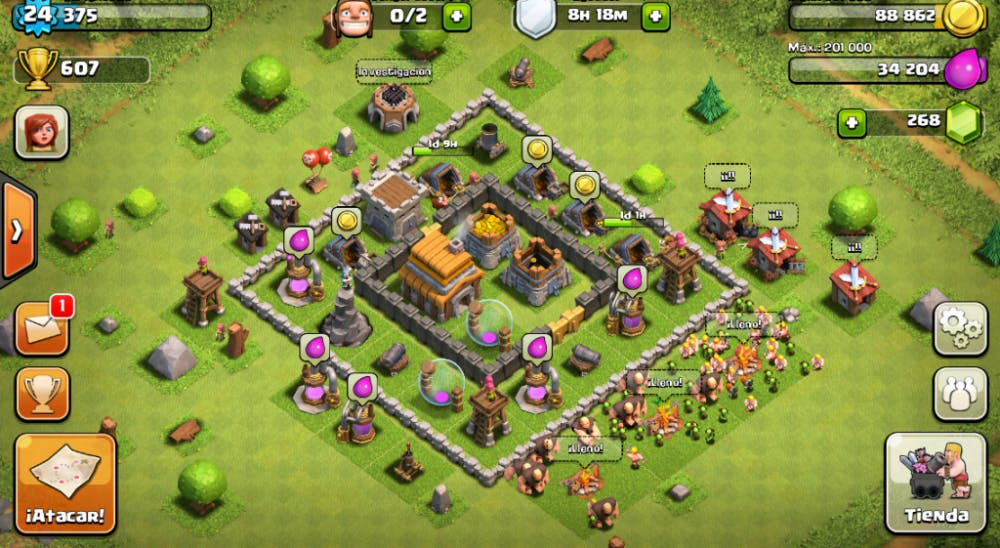I had to take both the subway and bus, and they were always crowded because, of course, school starts just after rush hour. There usually wouldn’t be any seats available, so I’d have to stand, often in closer contact with people than I would ever have wanted.
There were basically two options I saw available to me while standing: stare at the people around me or stare at my phone. Unfortunately, I couldn’t do the former since I inevitably would have to make eye contact with someone and have an awkward moment. Most people opt for the second option, so that was what I ended up sticking with, too.
The thing is, texting and messaging don’t work all that well on the underground subway. Wi-fi was limited to only a few major stations, and my phone carrier was T-Mobile, so my service was near nonexistent. I could barely browse the internet at all.
So it’s really no wonder that I fell into the rabbit hole of mobile gaming during this time. It started with Candy Crush, and I went through almost all the games that stayed in the App Store’s Top 50 free games for a considerable amount of time at one point or another. I’m sure some of these are going to sound familiar: stuff like Temple Run, Subway Surfer, Where’s My Water?, Cut the Rope and the dozens of spin-offs and rip-offs they generated.
I thought I’d have endless free material to entertain me, but as the saying goes, all good things must come to an end. There would be a point in almost every game where I could no longer advance without getting significantly better, putting in a lot more time or, the easiest option, spending money (more specifically, spending my parents’ money).
That’s when I dug myself into a deeper hole by dipping into the world of micro transactions. The micro transaction system is one of the most ingenious money-making schemes in the history of gaming. You think you’re not paying much when every little power-up is just 99 cents, but eventually, all those micro transactions will turn into one big macro transaction.
The money sink didn’t just stop there, though; It went way deeper when I started playing games like Clash of Clans or Puzzle & Dragons. I was a big fan of the latter; It played like a hybrid of Pokémon and Candy Crush. Puzzle & Dragons didn’t just give you the options for power boosts or extra lives in its microtransactions. It gave you the option to gamble for the strongest and rarest five-star monsters with in-game slot machines.
The money-draining scam in Puzzle & Dragons basically worked this way for me: I’d spend $5 for a chance at a good monster, and I’d most likely get something completely mundane, like a three-star monster. “Okay, but you’ve only spent $5, so you shouldn’t have really expected anything,” I’d tell myself. “Spend another $5.”
Then I’d get a mediocre three-star monster again. “Okay, but you’re already $10 in. If you stop now, everything would’ve been for nothing,” was my logic to continue. In reality, the cost for another chance would be $5, but in my mind, it would be that and everything else I’d already spent up to that point. The concept of sunk costs in economics actually describes scenarios exactly like this: It refers to when you’ve spent money that can’t be recovered. Sunk costs are useless for us to consider in our decisions, but we consider them, regardless.
So by the time anyone gets something they’d be happy with in Puzzle & Dragons, they could easily have dumped a hundred bucks. I’d even read anecdotes of people spending close to a thousand dollars without getting any five-star monsters.
I eventually stopped playing Puzzle & Dragons and other mobile games, especially as I slept less and less throughout high school; I would devote more of my commute time to sleeping while standing (or at least attempting to).
Nowadays, my mobile gaming is limited to Facebook Messenger games. It’s fun to see group chats get into a rage over these games, but I haven’t gotten as obsessed with them as some of my other friends. I think it’s safe to say I’ve learned my lesson.


















